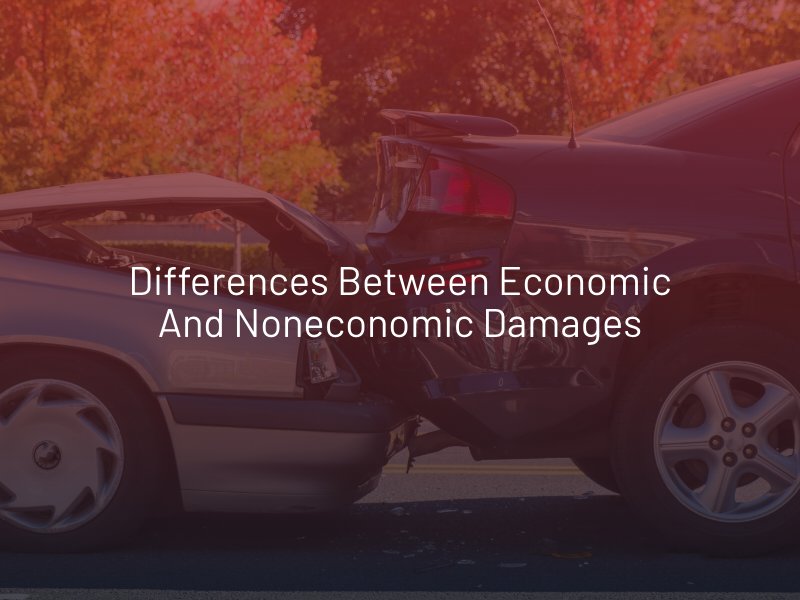What Damages Can I Recover in a Car Accident Claim?
Those injured in a car accident in Las Vegas are entitled to recover compensation from the at-fault party, known as damages. There are two types of damages available to pursue: compensatory and punitive.
Compensatory Damages
Compensatory damages compensate a victim for their current and future losses. Within compensatory damages, there are two categories: economic and non-economic damages.

- Economic Damages: Financial losses that require evidence of the actual amount of money you have lost. Some examples include:
-
- Medical bills: emergency visits, hospital stays, physical therapy, outpatient procedures, prescription medications, etc.
- In-home medical care
- Nursing home or rehabilitation costs
- Medical treatment
- Property repair or replacement (e.g., vehicle and any personal belongings damaged in the crash)
- Lost wages from missed work
- Diminished earning capacity (if you are no longer able to work at the same level as before the accident)
- Non-Economic Damages: These damages do not reflect financial losses but are subjective. This makes them much more challenging to prove. For instance:
- Pain and suffering
- Emotional distress
- Loss of enjoyment of life
- Loss of opportunity
- Loss of consortium
- Physical impairment (e.g., disability, loss of a limb)
- Disfigurement
- Unjust hardship
Punitive Damages
The second type of damages available in some car accident cases is known as punitive damages. However, this type of compensation is rarely awarded. It is reserved for cases involving defendants (at-fault parties) who acted in a malicious or egregious manner. Punitive damages are a form of punishment and also meant to deter similar harmful acts by others in the future.
How Much Compensation Can I Get After a Car Accident?
The amount of compensation you can receive after a car accident depends on various factors, including the following:
Liability and Strength of the Case
Liability is the legal term for fault. If there is strong evidence to support another party’s liability, it can dramatically increase the value of your claim. On the other hand, your compensation can be reduced if there is evidence that you were partially or entirely to blame. Nevada courts follow the rule of modified comparative negligence, which means you must be 50% or less responsible for the accident to recover compensation, plus your percentage of fault will reduce the amount you recover.
Damages
The severity of your injuries and other losses will directly impact your claim’s worth—for example, the following is generally considered:
- Whether you had pre-existing injuries, and if so, if they were made worse.
- Whether your injuries are permanent.
- The amount, type, and cost of your medical care.
- The amount, type, and cost of anticipated future medical care.
- Whether there are any gaps in your medical treatment after the collision, and if so, why?
- The amount of lost wages.
- Whether you will be able to return to work.
- Whether your injuries cause restrictions on daily life activities.
- The extent to which your life has and will be impacted.
- Whether your spouse or children have suffered.
Insurance Policy Limits
The defendant’s insurance policy limits play a crucial role in determining the potential value of a car accident case. When an individual is injured in an accident, the compensation they can receive is often limited by the at-fault party’s insurance policy. If the liable party’s insurance coverage has low limits and your damages exceed them, the insurance company is not obligated to pay the difference.
Speak To a Las Vegas Car Accident Attorney Today
If you have been involved in an accident, contact an experienced Las Vegas car accident attorney. They can help ensure you recover the compensation you deserve.